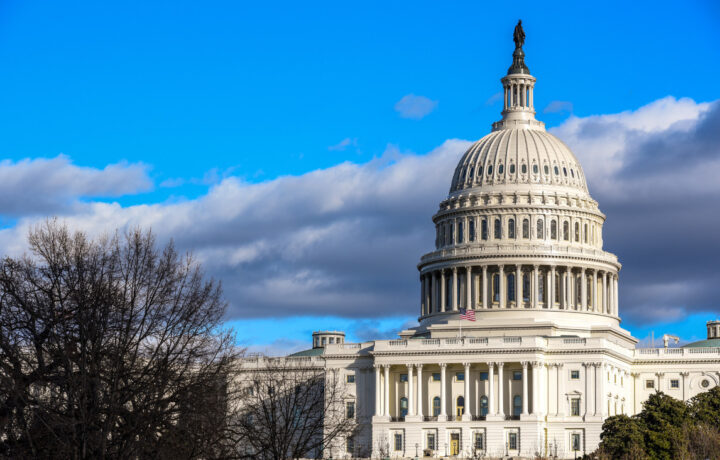I learned early on that actions speak louder than words. And in the world we live in, there are a lot of words that fly around all the time. But what actions go along with those words? The federal government has talked about wanting to attract top talent. In fact, these are words that even politicians promote. The second anyone suffers a major data breach, lawmakers point out the existing talent gap. Of course, the conversation also turns to attracting the next generation to work in national security. It’s hard to talk about the need for talent at the same time Congress puts a government shutdown on the table.
3 Ways the Government Shutdown Costs National Security
The American budget is consistently a topic among politicians and the general public. But that talk isn’t actually cheap. This endless conversation with continuing resolutions (CR) and shutdowns is actually quite costly to our national security. Time and talent get hit the hardest – and both have a costly impact, felt in countless ways.
1. Time
Somehow, the new fiscal year takes lawmakers by surprise every year. And while it may appear that lawmakers want to spend less by proposing a shutdown or CR, according to the Committee for a Responsible Federal Budget, government shutdowns actually cost America more money. Every federal agency that relies on the appropriation bills to be enacted has to have a contingency plan in place for a government shutdown. It takes a lot of time to create contingency plans.
In fact, even continuing resolutions require endless budget drills for federal employees. It’s like Congress is saying, “remember how you had to prove you needed the chair you sit on for the planned budget? Now we need another detailed report to let us know that you really need us to release the money for you to actually buy the chair that we budgeted.” It would be fine if that happened one time. Unfortunately, that would be too efficient. This wastes so much time.
Of course, then there’s backpay to be considered. After all that time spent deciding who is essential and has to show up to work and who is not, the federal government still provides backpay for hours that were not worked. While federal employees who have zero control over when their office doors are open should be paid for this rollercoaster ride, it still costs money. It doesn’t save us a dime.
2. Federal Talent
And here’s where actions speak loudly to the future and current workforce. The federal government doesn’t just lose employees because they leave for higher compensation. Sometimes that’s the case. People need to go where they can make more money. However, many have dedicated their lives to serving the U.S. federal government. And many would be consider it – even after enjoying the life on the outside. In the ClearanceJobs 2023 Security Clearance Compensation report, 81% of government contractors said they’d consider a job as a government employee. But when you create job insecurity, the federal civilian life loses its shine.
It’s already a known fact that the government hiring process is slow, in fact it takes twice as long as the private sector, shared Michelle Amante, Vice President of Workforce. So a shutdown or CR makes a current challenge even more daunting. Amanta said, “During a shutdown, and often with a CR, hiring is frozen, so people stop applying for federal jobs and those in the pipeline get stuck. Not only does government lose out on talent, but it’s also hard to recruit talent in the future when people looking to public service see that they may not be able to work, may have delayed paychecks, and are in a constant state of flux due to congressional arguments over government funding and shutdowns.”
Shutdown talk creates job insecurity. America loses out on the talent we already have and the potential talent to come.
3. Government Contractors
Some contractors can seem a little more secure when shutdown discussions begin to surface. For those who support the federal government off site and do not require any interaction from the government during the potential shutdown, life should march on per usual. As long as they don’t need the government for anything and can wait on submitting an invoice, status quo is relatively unaffected for many contractors.
However, there are many contractors who work alongside federal employees. Max Stier, president and CEO of The Partnership for Public Service shared, “During a shutdown many contractors likely will not be paid and are not guaranteed backpay once services resume. This can lead to attrition of the contractor workforce and hamper the ability of agency programs to meet their missions. Shutdowns slow down work for contractors and stymies innovation and research.”
All the chatter about what will happen with a shutdown impact contractors regularly. It creates insecurity in the hiring process and adds delays. Contractors have to support federal government contingency plans – and make their own, as well. According to Stier, “We need a robust and long term funding solution that provides consistency for federal agencies and contractors to keep working and to ensure that the public has access to the programs and services they rely upon.”
Looming Deadline for a Government Shutdown
It remains unclear if the House will be able to get a plan in place to avoid a shutdown in less than a week. Some are proposing that Congress just kicks the can down the road a little, so everyone can enjoy the holiday season and start the new year off with a bang. Bottom line? Budget drama costs everyone more money. The longer Congress cannot find a way to not only pass a budget, but also appropriate it, the more talent and time we lose.



